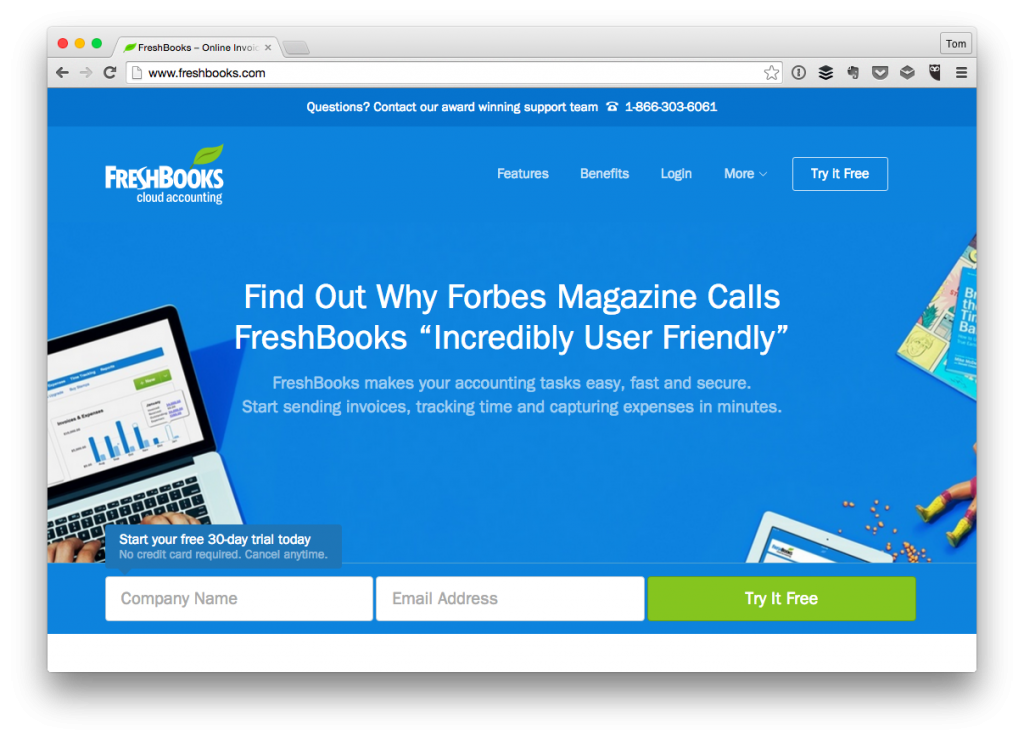Some of the developers and designers who I admire the most in the wider development community are really good about being open about various aspects of their businesses. Sometimes they talk about their challenges, sometimes they do financial reports, and other times they cover different topics.
I’ve slowly been trying to share some of my own experience as it relates to self-employment. It’s not meant to be prescriptive or meant to be a guide on how you should do anything, but it’s something that I hope proves useful if for no other reason than to show what’s worked for me.
So in this post, I thought I’d share how I’ve gone about managing my books – or how I’ve done self-employment accounting – since working out of Pressware.
Self-Employment Accounting
Before getting into how I do things now, it’s worth noting that my first year in business I ended up doing everything myself. Part of this was being inexperienced, part of this was being naive, and part of it was because I figured it’s my business so I should run all aspects of it.
#LOL. Youths.
But then tax time came – to say that that resulted in a little bit of sticker shock would be an understatement.

Tax Season Selfie
Luckily, there were (and are) enough people in my life that helped to share the significance of saving when you go into business for yourself so the bill was covered. Still, when you’re used to having your payroll taxes deducted as well as all of the other items such as FICA, et al., you neglect to research just how much you should be withholding.
So from there, I went with a two-step system in order to prevent anymore surprises like that from happening again.
Software
To be clear, I’ve kept books ever since the first time I took on a client contract – even before I was self-employed. To say that I went with a two-step process is a little misleading.
I more or less went with, say, a-step-and-a-half.
First, I continued to keep books using my software of choice – FreshBooks – but I got more organized with how I was tracking things so when it came time to do expense reports, review the P&L and so on, it was less tedious than prior years.

But I didn’t stop there. And when people ask me what the smartest thing I’ve done since being in business for myself I can only answer what I’ve done up to this point.
It’s an easy answer, though: Hire a CPA.
CPA
Even when I was working for someone else, I always had a CPA taking care of my yearly tax filings to make sure sure that everything was done right.
Sure, I know plenty of people – both family and friends – who do taxes on their own. I think that’s awesome – it can save you money, there’s software that’s available to help you, and it makes it much easier to do it than it did 10 years ago.
All I’m saying is to each his or her own.
But when it comes to running a business – especially when you’re trying to focus on the business to streamline it, refine it, and even grow it – handling all of the details of taxes can become a distraction.
So after talking with those who are older and wiser than me, I opted to hire the same CPA my parents have used for their business for the past two decades (or more) and it’s been the best thing I’ve done.
Not only does it make sure the necessary amount of taxes are taken out for each month’s paycheck (and no more), it also helps to have someone on call for when you have questions about things related to subcontractors, distributions, certain types of business expenses, questions regarding retirement, and so on.
Ultimately, it’s one of those things that I recommend to anyone who asks my advice regarding starting their own business. It’s one thing that I wish I’d done sooner rather than later.
There’s More To It
Anyway, a lot of this is obviously related to the United States and how our government is setup regarding taxes, businesses, and so on. Furthermore, it also depends on how you’re doing business – are you incorporated, are you a C-corp, an S-corp, an LLC, and sole proprietor, etc., etc.
To that end, the information here is unique to my situation and likely won’t necessarily be relevant to what you’re doing. If I had to generalize it, though, I’d say:
- Keep very detailed books. Log every transaction and categorize appropriately.
- Have an expert in the tax code prepare your taxes.
Then again, maybe this isn’t the best course of action for what you’re doing. Either way, just make sure that when it comes to managing the finances of you’re business, you’ve got someone with more experience than you helping you out.
It can go a long way in saving money and preventing headaches.


Leave a Reply
You must be logged in to post a comment.